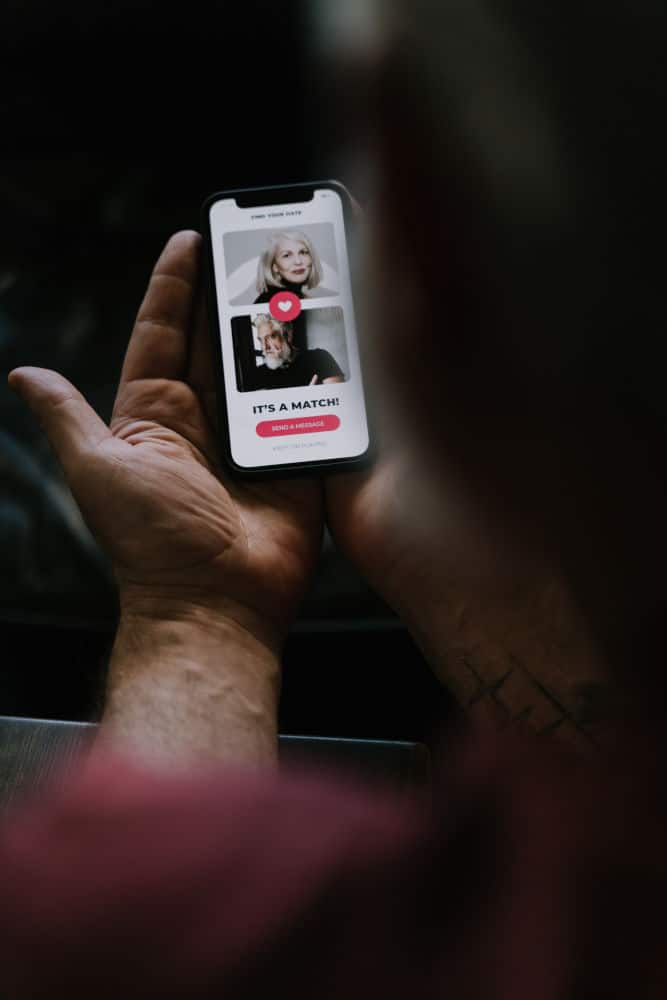
The way we meet people, and date, has changed considerably over the last 5-10 years, with a movement towards online interaction and introductions, over meeting potential partners in a café, bar, gym or workplace. Data from 2021 revealed that 323.9 million people use dating apps (Business of Apps data, 2022), an upward trend which is unlikely to decline anytime soon, with Tinder revealing that its App generates 1.6 billion swipes per day.
Online dating has a number of obvious benefits, such as convenience, an increase in choice of mate, and so on. However, concerns exist, particularly in relation to the mental health of individuals using dating apps and the ease at which people are able to reject or discard people, without thought for how this may impact the other person. Rather than avoiding online dating completely, it’s important we learn how to manage our emotions and interactions, to ensure we obtain the benefits of online dating whilst also taking good care of our mental health. Here’s how:
See the bigger picture
Have you ever met someone and not found them attractive, only to get to know them better and realise you’re incredibly attracted to them? Or, on the contrary, having become besotted by someone you found physically attractive only to meet them in person and realise there’s no connection or attraction? This is because online dating apps present only a very limited aspect of who you are, predominantly based on how you look and who you claim to be. What they miss are the characteristics which make you who you are – your sense of humour, how you treat people, your values and your personal story. It’s important to remember this if you’re allowing other people’s lack of interest in ‘you’, based simply on your looks and a brief online profile, to impact your self-worth. Remember, you’re a lot more than what you present online.
Validate yourself
An important thing to remember is that no one has the power to determine your worth. It’s very easy to feel bad about yourself when experiencing regular rejections online. Unfortunately, the more people you attempt to engage with online, the higher the chances are that you’ll be rejected. This may include not being messaged back, ghosted, or your interest not being reciprocated. It’s okay to feel disappointed and sad when someone you find attractive is not interested in you or rejects you. Allow yourself to feel the sadness and disappointment, and then remind yourself that someone not liking you does not mean you’re not worthy. It simply means they don’t like you. You’re still worthy and valuable just as you are.
Nurture your relationships
Spend time with people who know the real you and accept you as you are, imperfections and all. This will help balance the very superficial aspect of dating apps and remind you of your value when you’re feeling low or questioning your worth. We all need support from trusted people in our lives, so nurturing these important relationships is crucial to our wellbeing and happiness.

Be authentic
Naturally, we try to portray the best version of ourselves online, whether on social media or dating apps. The danger is, however, that ‘faking it’ or trying to fit a mould of what we think we should be, may result in the other person rejecting us as soon as they realise we’re not who we claimed to be. So, don’t be scared to be the real you, and saying what you really want from the other person. For instance, if you want a long-term relationship, don’t say you’re looking for fun or a fling because that’s what you think people want to hear. Honour your needs, otherwise you’ll increase the possibility of rejection and you may spend time with people who may be unwilling or unable to give you what you need.
Beware depersonalization
Dating apps offer a limitless choice of potential partners, causing people to develop the attitude that there’s always someone more interesting or suitable just around the corner. This leads users to ghost people or end relationships without communicating with the other person first or working through problems as they arise. Not witnessing how one’s actions impact the other person can lead to depersonalisation and a sense that people can be ‘disposed’ of relatively easily. It’s important to remember that whilst you can’t control how someone treats you, you do have a choice over how you respond. You can also choose to treat people in the way you’d like to be treated, and not buy into this culture of discarding people without a second thought to how they may feel.






